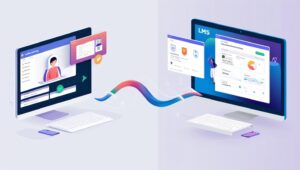The College-Level Examination Program (CLEP) has revolutionized the process for those seeking non-traditional means of obtaining college credits. College Board CLEP gives students flexibility by allowing them to exhibit their knowledge and skills in various disciplines through the ease of remotely proctored exams. But it’s imperative to guarantee accessibility and fairness for every test-taker, including those with special needs or impairments. CLEP accommodations are essential to give every participant an equal opportunity to demonstrate their skills. Let’s explore the realm of CLEP adjustments for remotely proctored tests and see how they support fair testing practices.
Understanding CLEP Accommodations
CLEP meets a wide range of demands by providing a range of accommodations for people with impairments or special needs. With these modifications, test-takers should be able to demonstrate their genuine knowledge and skills without any obstacles. Extended testing times, different test formats (such as Braille or big print), compatibility with assistive technology, and private testing rooms are a few accommodations offered by CLEP. These modifications accommodate each person’s unique demands while maintaining an impartial and comfortable testing atmosphere.
Before registering for your exam, be sure the College Board has authorized your accommodations. Testing with a remote proctor provides many accommodations, such as:
- Screen magnification
- Modifiable screen colors
- Extended time
- Untimed rest breaks
- Permission for essential medical accommodations (e.g., food, drinks, medication, monitoring blood sugar) within the proctor’s view and without affecting the CLEP testing platform.
Remote Proctored Exams and Accommodation Implementation
The ease of taking CLEP exams from home has been made possible by remotely proctored exams, which have completely changed the way people handle these exams. However, there are additional difficulties involved in accommodating test-takers remotely. It takes careful preparation and coordination to guarantee the smooth implementation of accommodations in a remote area. If test takers need accommodations, they must notify CLEP in advance and provide the required paperwork to back up their demands. To protect the integrity and fairness of the exams, CLEP works with proctoring services to guarantee that accommodations that have been accepted are applied successfully during the remote testing process.
Advantages and Considerations
There are various benefits to using accommodations for CLEP tests that are remotely proctored. It promotes inclusion by putting people with different needs on an equal playing field. Furthermore, the adaptability of remote testing and accommodations lowers obstacles for those with difficulties in conventional testing settings. But while implementing accommodations remotely, there are some things to keep in mind, like protecting the exam’s security and integrity. When administering remote CLEP tests, test-takers must prioritize maintaining test secrecy, minimizing potential cheating, and upholding the validity of the test.
Summing up
For those taking remotely proctored tests, CLEP offers accommodations specifically designed to meet their needs. These modifications aim to eliminate obstacles and guarantee fair testing conditions. Comprehending the accommodations offered and the remote exam implementation procedure is essential. Exam integrity and security requirements remain critical, even though inclusivity and flexibility offer significant benefits. CLEP’s willingness to provide accommodations for test-takers highlights its commitment to accessibility and justice, enabling people to successfully exhibit their knowledge and abilities in pursuit of their academic objectives.










